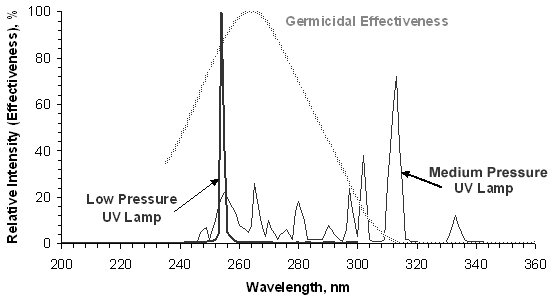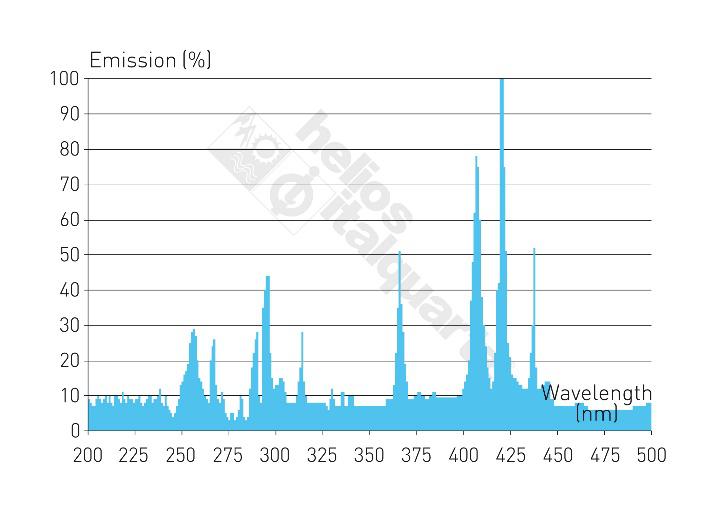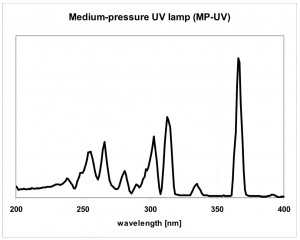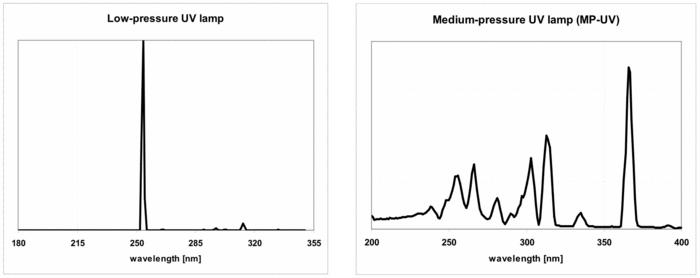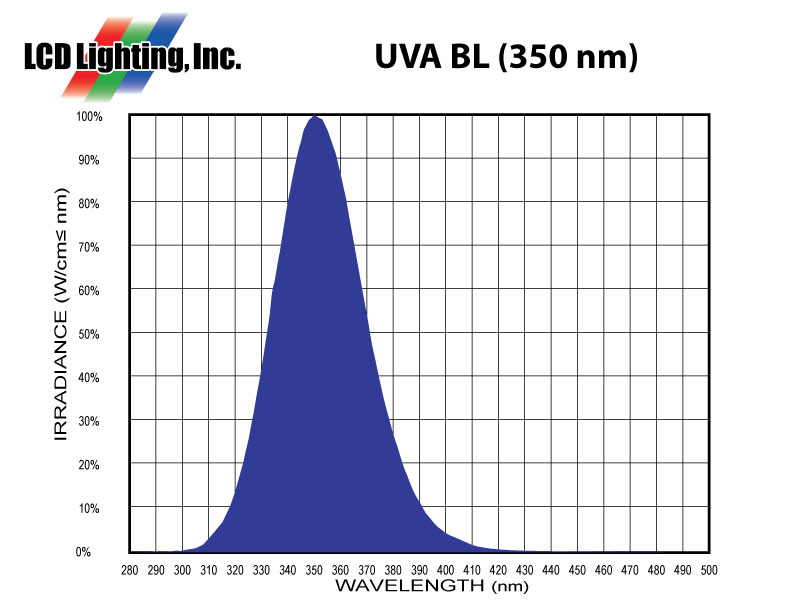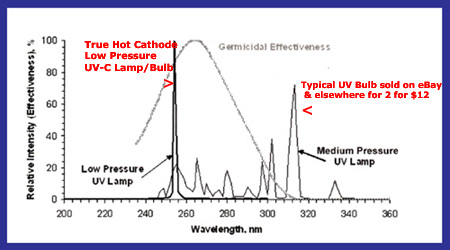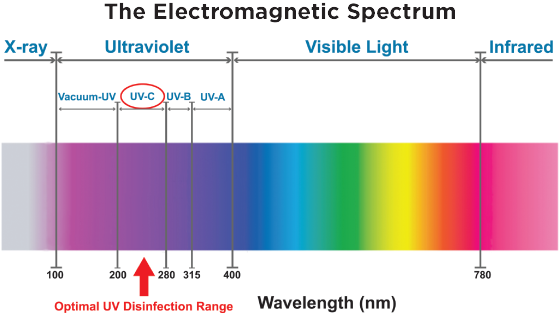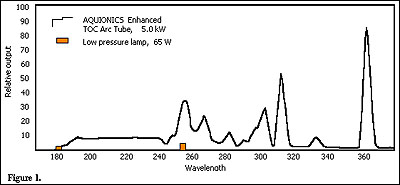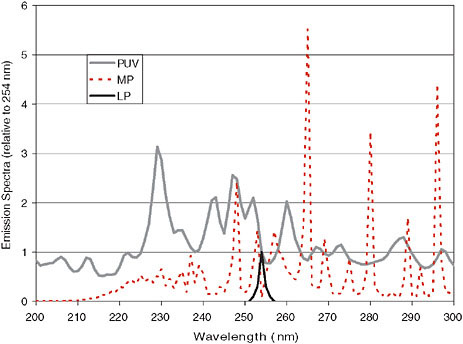Wavelength nm spectrum uv medium pressure lamp gallium doped relative spectral intensity distribution nm uv medium pressure lamps emit a so called discontinuous spectrum or line spectrum graphic 4 during operation.
Medium pressure uv lamp wavelength.
An increase in the current supplied would cause the uv lamp to rapidly heat up thus increasing the mercury pressure to produce the typical medium pressure spectral output shown in diagram 2.
Quartz germicidal uvc lamps can produce both 254nm wavelength killing wave and 185nm wavelength ozone.
The emission peak of the mercury electron transition within these low pressure hot cathode uv lamps is fixed in both energy and wavelength.
Uvc maintenance over the life of the lamp is much higher over the life of the lamps.
Fused silica is used in the manufacturing to keep the 184 nm light from being absorbed.
Unlike most other uv sources the medium pressure lamp mpl has a polychromatic spectral distribution from 190 nm up to the infrared spectrum.
Medium pressure mercury arc ushio produces standard and custom uv emitters.
The uv lamps for water treatment consist of specialized low pressure mercury vapor lamps that produce ultraviolet radiation at 254 nm or medium pressure uv lamps that produce a polychromatic output from 200 nm to visible and infrared energy.
In such a spectrum there are separate discrete points of increased intensity so called spectral.
The medium pressure lamp emits its radiant energy between 250 and 350 with many energy spikes in between most notably around 320 which is more in the uvb range with a uvc efficiency around 7 15.
Medium pressure uv lamps have a multispectrum wavelength for this reason smp unit has the ability to break chemical bonds and have a good reduction of unwanted chemicals in water.
Our production facility is designed to meet specific customer requirements to produce customized one off lamps as well as achieve consistent quality in mass production.
The low pressure uv lamp is only capable of producing lines at 185nm and 254 nm.
The uv lamp never contacts the water.
The lamps can be constructed to emit primarily in the uv a around 400 nm or uv c around 250 nm.
Roughly 35 of the electrical energy imparted into the lamp becomes uv c energy of the 254nm wavelength.
The distribution of energy over the wavelength ranges is depicted on the left.
It is either housed in a quartz glass sleeve inside the water chamber or mounted externally to the water which flows through the transparent uv tube.



